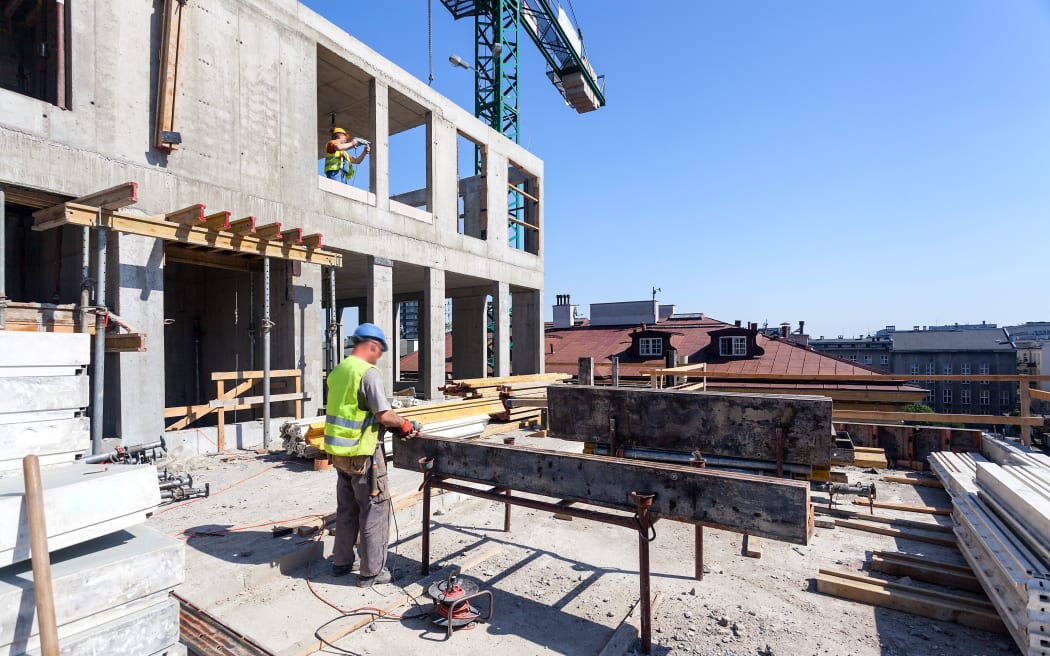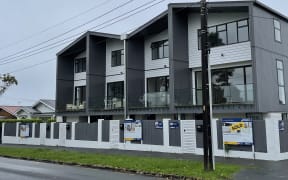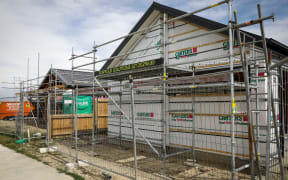Developers have told MPs they do not want a housing intensification bill that gives them open slather across swathes of suburbia.
Developers have told MPs they do not want a housing intensification bill that gives them open slather across swathes of suburbia.

High density development in suburbia that work in other countries, will not work here, a developer says. Photo: 123rf
An iwi says the bill is a "disgrace".
The parliamentary Environment select committee has been conducting days of urgent hearings on the bill, including Saturday and finally yesterday.
Nigel McKenna, who has billions of dollars of housing developments in the pipeline at his Templeton group, rejects the move to drop obstacles to high-density housing across the board if a developer so wishes, and its "unintended consequences".
"We have different needs. So densities that actually work in other countries don't actually work here, because we actually do want to live outdoors and have barbecues," McKenna said.
Medium density rules should be left in place, but allow for high density - or low, around heritage or environmentally sensitive spots - in suitable areas, with the overall goal of reaching a 40 homes per hectare maximum density, he told MPs.
This density is about or a bit more than you get currently in the likes of Freeman's Bay or Newtown, but less than what requires high-rises or underground parking.
Alongside such flexibility you needed speed, but from different rule changes than in the bill, McKenna said.
"I can deliver 3000 houses in Wellington if I could get a plan change, but I'm looking at currently a three-to-five-year process."
It required developers, and not just councils, being allowed to ask the Minister for a fast-tracked development; and more support for beleaguered councils from outside help to peer review resource consent applications, he said.
Ngāti Whanaunga told the committee people might imagine the iwi would welcome fewer controls.
But its environment officer, Dr Nathan Kennedy, said a proliferation of poor housing would only detract from the beautiful homes with Māori design they were already putting up.
"Those settlements will be diluted in the rush for development that we see that might occur here," Kennedy said.
"They, we consider, will push property prices up and will also give us cause for whakama. When we see huge amounts of development on all of our boundaries, we may feel a need to pull ours in, in response."
The Government was underestimating the pace and scale of house building already underway - because it was not listening, Kennedy said.
"It seems to me it that it's a shame that Ngāti Whanaunga are sitting here telling our Treaty partner what's right and wrong.
"We feel it's an outrageous bill.
"We feel that you've demonstrated you're not really listening - and we hope that you are."
Unitec School of Architecture Senior Lecturer Dr David Turner drew international parallels.
"The one-size-fits-all, build-anything-anywhere concept - we're saying, 'Where in the world, in a modern city, does such a plan operate?' And we can't find one," Turner said.
Counter to that, Wellington campaign group A City for People, told MPs the bill was so good there should be more of it.
Spokesperson Lachlan Patterson said it should apply to smaller tier-two councils like Nelson, not just the 14 larger tier-one councils.
"I think we do need all hands on deck," Patterson said.
"We don't want to be waiting a long time ... and it's also acknowledging that by increasing that housing supply in other areas, it can relieve the demand on these on bigger cities as well, which might be struggling with infrastructure."
Planners of a 4000-home development at Beachlands east of Auckland said the bill was heading in the right direction but could actually undermine development.
That was because the freer standards would let 6000 houses be built at Beachlands, and the infrastructure and roading must be provided to match that, resource management lawyer Bill Loutit said.
"It will disincentivise and mean that Master Plan developments like this may not be delivered," Loutit said.
Dr Richard Norman said a blanket approach could lead to slums, but targeted densification worked, such as in Te Aro in central Wellington.
"Te Aro is one of the most densely populated parts of New Zealand, with approaching 500 people per hectare," he said.
"It now has a population bigger than Karori, 16,000 people, up from almost no one living in the area in 1990."
The Environment Committee's report on the Bill is due back on 2 December.





